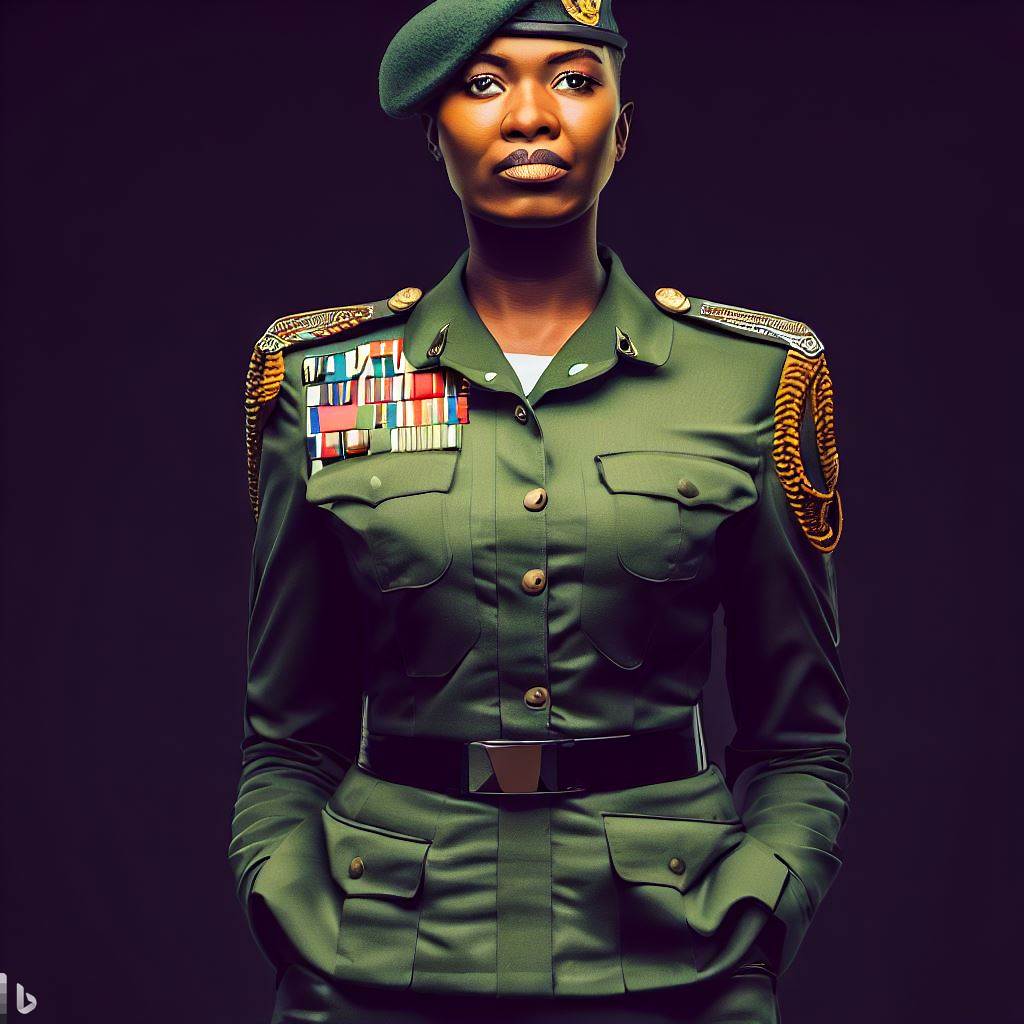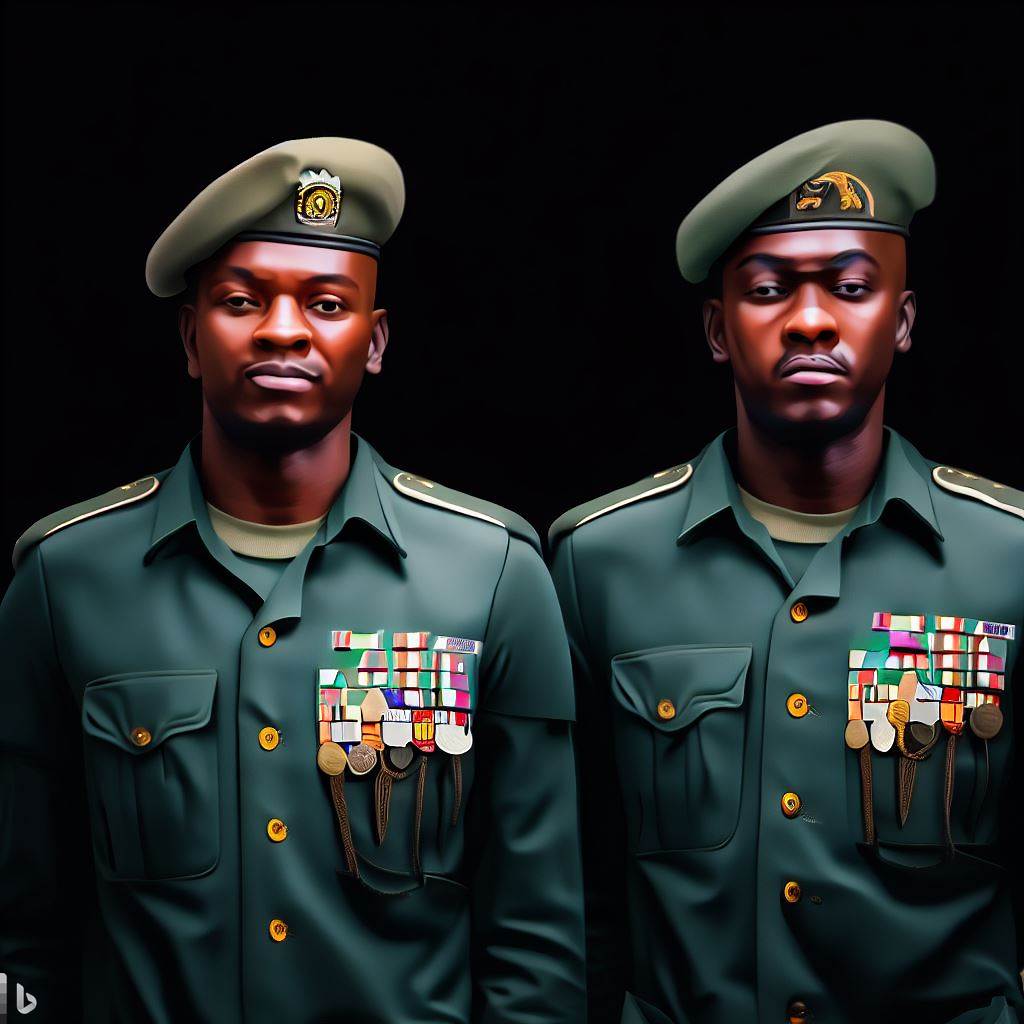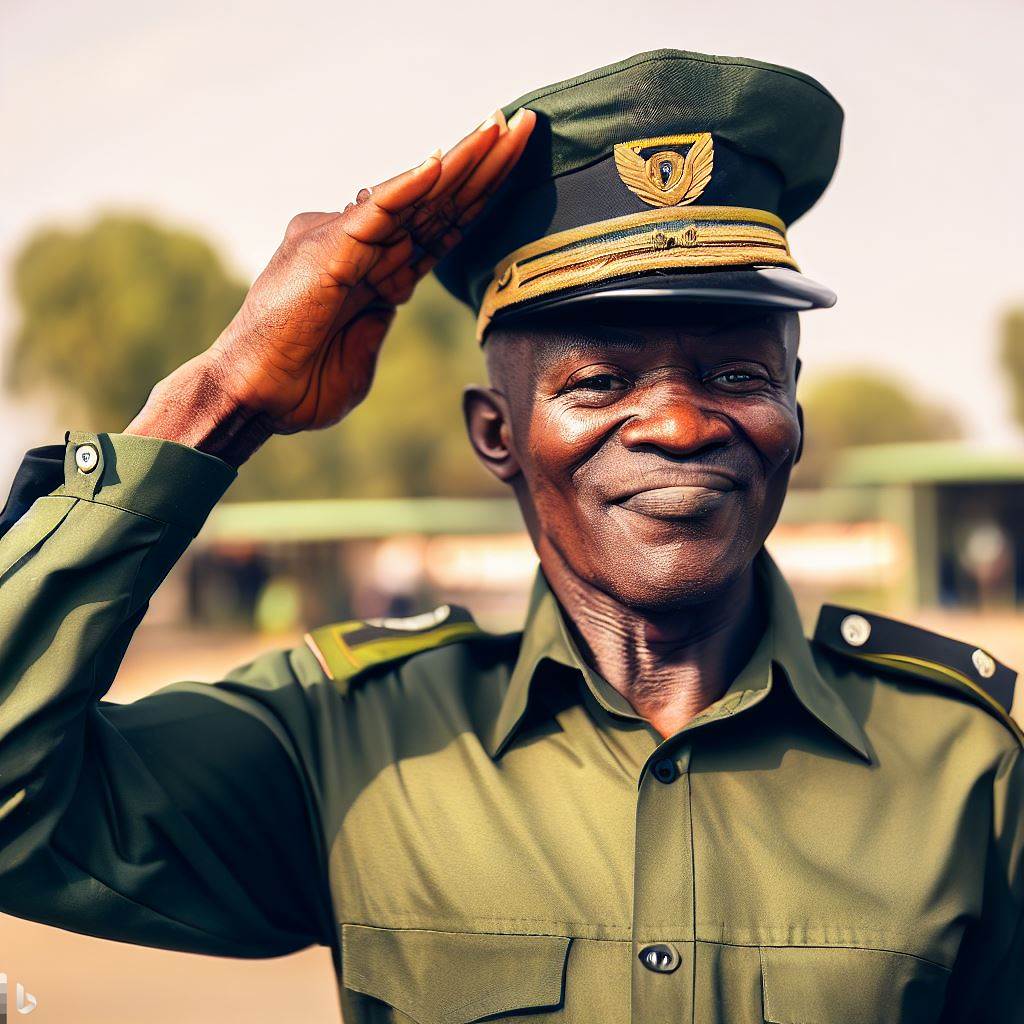Introduction
Military officers play a critical role in ensuring national security and protecting the territorial integrity of Nigeria.
Their duties and responsibilities encompass a broad range of activities, including command and control, strategic planning, and operational management.
Understanding the intricacies of these responsibilities is crucial for citizens, policymakers, and stakeholders alike.
Military officers are trained professionals who possess a combination of technical, tactical, and leadership skills.
They work tirelessly to safeguard the nation’s interests, both at home and abroad. It is vital to recognize the significance of the Nigerian military to the nation’s stability and national security.
Gaining knowledge of the duties and responsibilities of these military officers is key to promoting public appreciation and support for their vital role.
Ultimately, understanding their role and importance creates a platform for a fruitful collaboration between the Nigerian military and society.
Such collaborations can help achieve a safe and secure environment, in line with Nigeria’s overall development aspirations.
The following sections will further explore the Duties and Responsibilities of Nigerian Military Officers in detail.
Read: The Impact of the Nigerian Government on Daily Life
Duties of Nigerian Military Officers
Military officers are responsible for the protection of their country and ensuring peace and security. In Nigeria, military officers must perform various duties, including combat, administration, and community relations.
Combat Duties
Combat duties are the most important duties of Nigerian military officers. These duties involve putting their lives on the line in order to protect their country.
Combat duties include defending the country against external threats, suppressing internal insurrections, and maintaining law and order.
The importance of combat duties cannot be overstated. Nigerian military officers must be well-trained and prepared to react to any threat to the nation’s security.
Their bravery and dedication to duty are essential for the protection of the nation’s citizens.
Administrative Duties
Administrative duties are another important responsibility of Nigerian military officers. These duties include managing the military’s human resources, overseeing logistics, and maintaining the military’s infrastructure.
Without proper administration, the military would not be able to function effectively. Nigerian military officers assigned to administrative duties ensure the military is well-maintained and equipped for other tasks.
Community Relations
The military is not only responsible for protecting the nation but also for maintaining a positive relationship with the community it serves.
Nigerian military officers must be able to interact effectively with the local community to earn their trust and support.
This duty is especially important in areas where the military is involved in fighting against insurgents.
By establishing positive relations with the local population, the military can gain valuable support that is essential to the success of their operations.
In essence, the duties and responsibilities of Nigerian military officers are diverse and complex.
Combat duties, administrative duties, and community relations all play a critical role in ensuring that the military is successful in protecting the nation.
Nigerian military officers must be well-trained and dedicated to their duties.
They must understand the importance of each duty and be willing to carry out their duties to the best of their abilities.
Only then can the military be confident in its ability to protect the nation and maintain peace and security.
Read: Profiles of Heroes: Notable Nigerian Military Figures
Responsibilities of Nigerian Military Officers
In Nigeria, military officers have a variety of responsibilities that they must carry out to maintain law and order.
These duties can be broken down into organizational, professional, and personal responsibilities. Each of these responsibilities plays a vital role in ensuring that the military officers are effective in their duties.
Organizational Responsibilities
- Nigerian military officers have the responsibility to protect their country’s territorial integrity and maintain its sovereignty.
- They must work to maintain peace and order within the country by assisting the police force in upholding the law.
- They must act in accordance with the Nigerian Constitution, laws, and regulations, and follow given orders from their superiors.
- They must adhere to the principles of military discipline and conduct themselves with honor and dignity both in and out of uniform.
These organizational responsibilities are crucial to ensure that the military officers maintain the country’s security. The military officers act as protectors of the nation’s territorial boundaries and uphold the law, serving as a source of stability and order in the country.
Professional Responsibilities
- Military officers must possess a deep understanding of battlefield tactics and strategy. They are trained to respond effectively to any threat against the country’s security.
- They must be knowledgeable in their specific field of expertise, such as piloting, engineering, or communications to name a few.
- They must be prepared to work in various environments with different circumstances, from harsh deserts and dense jungles to urban areas, facing diverse climate conditions.
- They must be willing to risk their lives in service to their country and put the mission first, above personal comfort or other selfish considerations.
Professional responsibilities are integral to ensuring that the Nigerian military operates efficiently and achieves its goals.
By possessing in-depth knowledge, military officers can perform their duties quickly and effectively, completing their missions skillfully.
Personal Responsibilities
- Military officers must maintain their physical fitness levels to ensure they are always ready for the rigors of military service.
- They must take responsibility for their equipment, ensuring proper maintenance, care, and good working condition.
- They must maintain a positive attitude towards their work and colleagues, treating everyone with respect and dignity.
- They must maintain high moral standards, which prohibit actions that would damage the image of the military or the country they serve.
These personal responsibilities are crucial to maintaining the trust and respect of those they serve, both inside and outside of the military.
We expect military officers to embody integrity and morality, serving as role models to those under their command.
In summary, Nigerian military officers carry out a variety of responsibilities that are essential in maintaining security within the country.
From organizational, professional to personal responsibilities, each role is crucial in ensuring that the military operates efficiently and effectively.
Military officers must possess discipline, expertise, and moral fortitude to fulfill these responsibilities, which are of great significance to the Nigerian people and the country at large.
Read: Training Programs in the Nigerian Military Profession

Challenges and Limitations of Nigerian Military Officers
Nigerian military officers have various duties and responsibilities, including protecting the nation’s sovereignty, territorial integrity, and national interests.
However, they also face several challenges and limitations that affect their effectiveness and efficiency in carrying out their tasks.
In this chapter, we will highlight some of these challenges and limitations and explain their impact on Nigerian military officers.
Challenges faced by Nigerian military officers:
- Inadequate funding: For decades, underfunding has plagued the Nigerian military, resulting in a lack of modern equipment, facilities, and training. Many military officers have to make do with outdated or substandard gear, which can put their lives at risk and reduce their combat effectiveness.
- Poor logistics and supply chain: The Nigerian military also suffers from a lack of efficient logistics and supply chain management, which can affect their mobility, firepower, and sustainability in the field.
Delays, shortages, and inefficiencies in transportation and delivery hamper many military operations. - Corruption and bureaucracy: Nigerian military officers also face corruption and bureaucratic obstacles that can impede their progress and lower their morale. They may have to deal with corrupt officials, delayed payments, and red tape, which can undermine their sense of duty and loyalty to their country.
- Insecurity and violence: Nigerian military officers frequently face deployments to highly insecure and violent areas like the Northeast region. There, they confront terrorist groups like Boko Haram and ISWAP. This can expose them to physical harm and psychological trauma, as well as disrupt their family life and social relations.
- Political interference and propaganda: Finally, Nigerian military officers have to contend with political interference and propaganda that can distort the reality of their situation and undermine their public image. Accusers may tarnish their reputation and demoralize troops by accusing them of misconduct, human rights abuses, or incompetence without due process or evidence.
Impact of challenges and limitations on Nigerian military officers:
- Reduced combat efficiency: Nigerian military officers face challenges that reduce combat efficiency, hinder mission success, and risk troop safety. They may rely on outdated equipment, face logistics struggles, and bureaucratic delays.
- Low morale and turnover: Challenges and limitations lower Nigerian military officers’ morale and retention rates, causing demotivation and disillusionment. They may experience financial hardship, family separation, or career stagnation, increasing susceptibility to corruption, desertion, or mutiny.
- Public skepticism and mistrust: Nigerian military officers’ challenges and limitations erode public trust in their abilities and integrity. The media and civil society criticize them for human rights violations, corruption, or inefficiency, fueling skepticism and hostility towards the military’s role in society.
- Security threats and instability: Challenges and limitations faced by Nigerian military officers worsen security threats and instability. Inability to contain armed groups challenging the state’s authority leads to a vicious cycle of violence, displacement, and humanitarian crises affecting civilians and the country’s image.
Nigerian military officers encounter challenges and limitations affecting their performance, lives, and society they serve.
They can address some challenges through better funding, management, and leadership.
Overcoming these obstacles improves officers’ effectiveness, morale, and contributes to a secure, prosperous Nigeria.
Read: Corruption in the Nigerian Government: An Analysis
Conclusion
The duties and responsibilities of Nigerian military officers are crucial to the country’s security and stability.
They protect Nigeria’s sovereignty, territorial integrity, and interests domestically and internationally.
Their primary duty is defending the nation against external aggression with proper training and discipline.
They thwart attempts to undermine national security through surveillance and intelligence gathering.
Nigerian military officers maintain law and order in collaboration with law enforcement agencies.
They are responsible for the protection of citizens and property during peace and stability operations.
As importantly, they have the responsibility to uphold the human rights of citizens, and they must never engage in any act that could violate these rights. They are expected to maintain the highest level of professionalism, discipline, and loyalty to the nation.
Understanding the significance of the duties and responsibilities of Nigerian military officers is crucial to enhancing national security and stability.
The Nigerian people should appreciate the sacrifices these officers make in securing the nation. Nigerians ought to support them with adequate resources to perform their duties effectively.
In this way, the military can execute their duties more efficiently and proficiently.
Finally, Nigerian military officers have significant duties and responsibilities, which are critical for protecting the nation’s stability, security, and sovereignty.
Nigerians must reiterate their commitment to supporting the military as they execute their tasks effectively.




